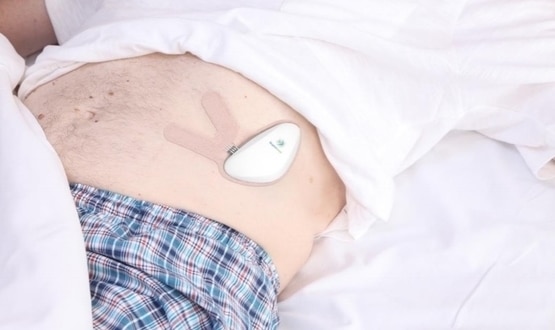Four trusts to pilot respiratory rate mobile device
- 13 November 2018

Four trusts are to pilot a device which allows clinical teams to accurately monitor a patient’s respiratory rate.
University College London Hospitals NHS Foundation Trust, Royal Free London NHS Foundation Trust, Whittington Health NHS Trust and Basildon and Thurrock University Hospitals will all pilot RespiraSense during an eight-week set-up phase.
Following a review of their progress during this period, successful trusts will be selected to go through to the full pilot, receiving a free six-month supply of RespiraSense monitors.
By accurately monitoring a patient’s respiratory rate, RespiraSense, which is supported by the NHS Innovation Accelerator programme, allows clinicians to identify patients whose condition is deteriorating up to 12 hours earlier than usual.
Respiratory rates are a component of NHS England’s National Early Warning Score 2, or NEWS 2, programme which aims to improve outcomes for acutely ill hospital patients.
Sara Lock, who will be leading participation of Whittington Health in this work, said: “Respiratory rate is a key component of the NEWS2 score so having the opportunity to set up a pilot of this innovative technology is very exciting.
“If we go on to participate in the full pilot we’ll be able to gain vital experience in using respiratory rate monitors and learn how they can best be deployed and integrated into routine use. The hope is that using this technology can ultimately improve outcomes for our patients.”
The pilot programme has been put together by the academic health science partnership, UCL Partners, whhich has worked with PMD Solutions, the creators of RespiraSense.
Back in November 2017, RespiraSense was listed as one of 11 new innovations NHS England is promoting.
Other innovations included HaMpton, which allows pregnant women who are at high risk of pre-eclampsia to input blood pressure readings and urine test results into an app.




